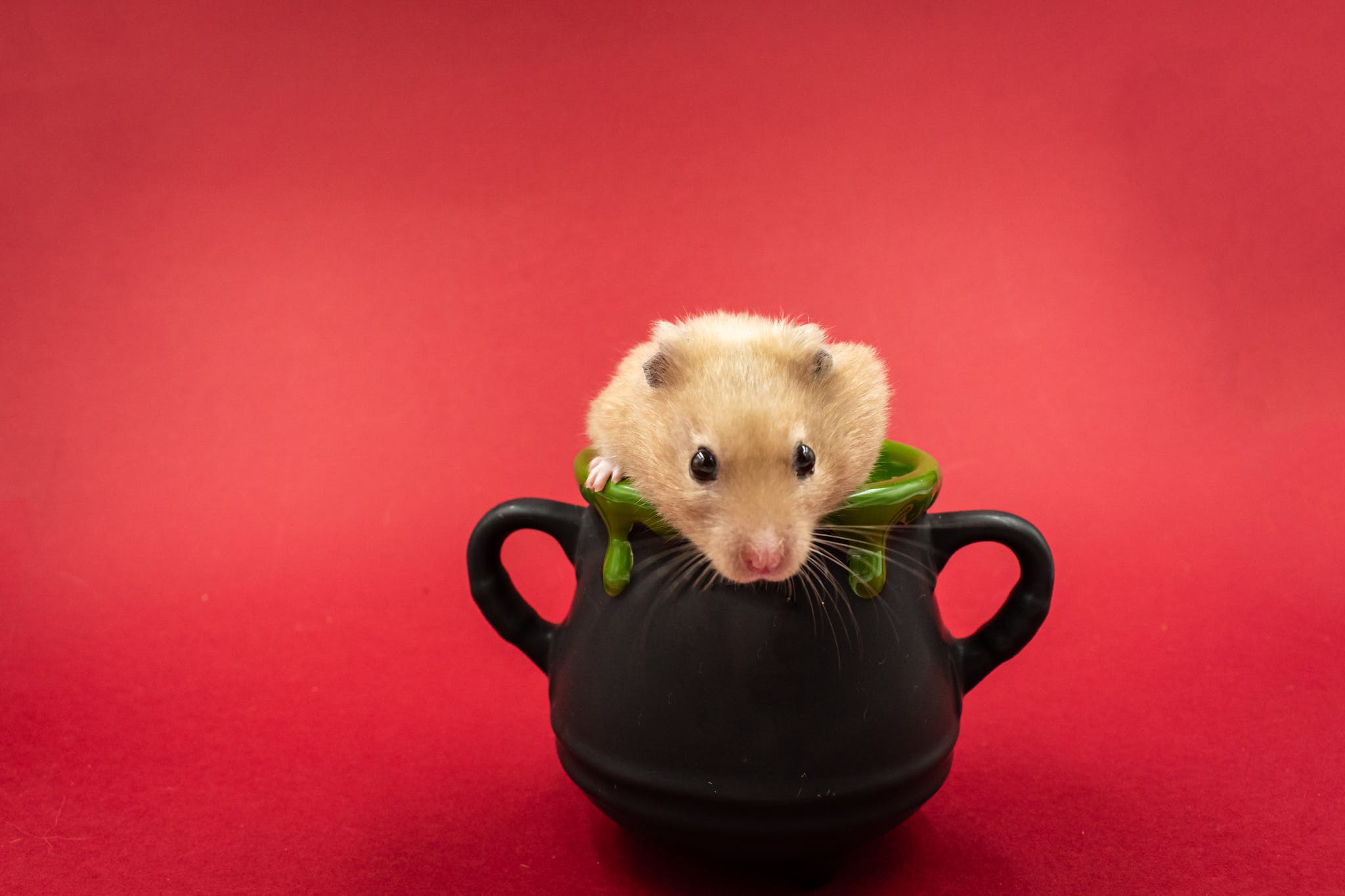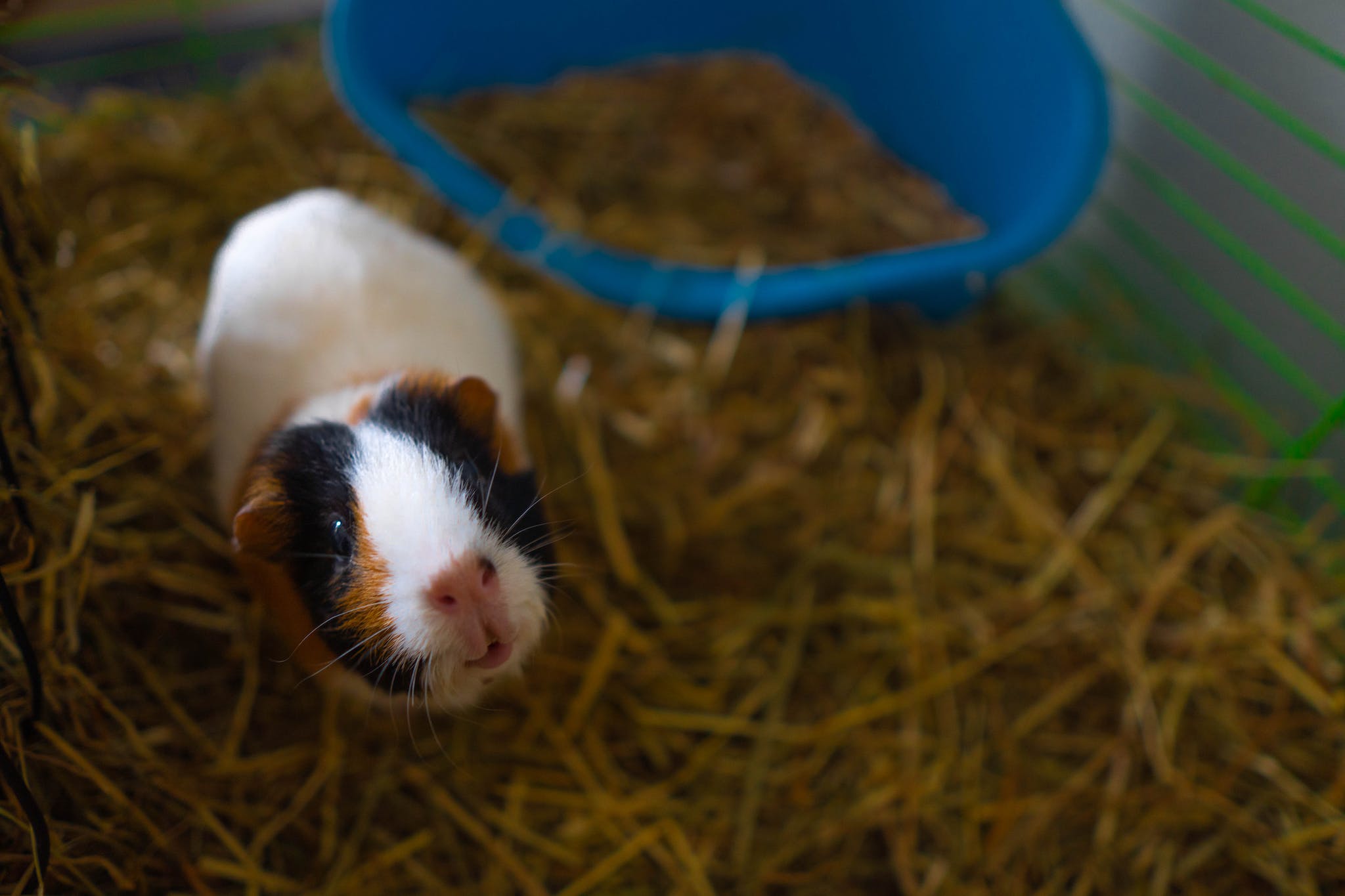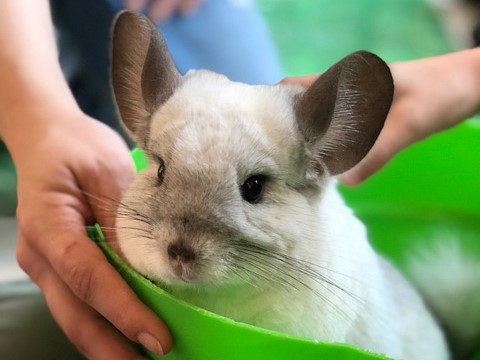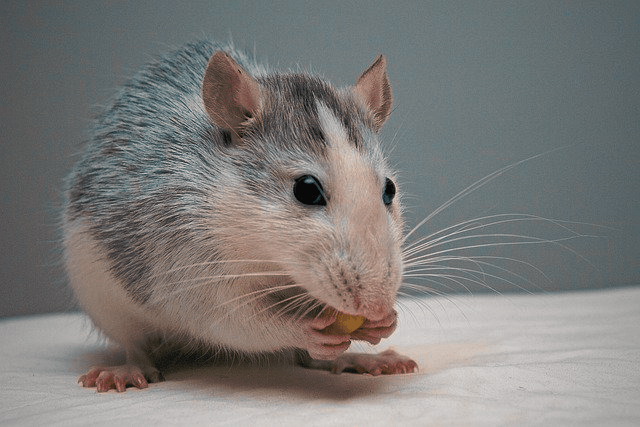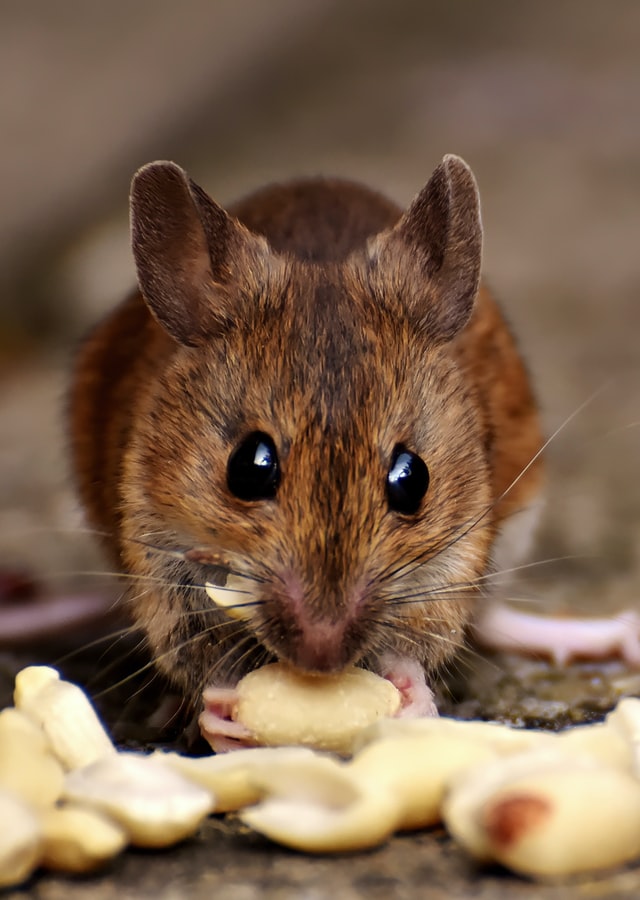Are Guinea Pigs Messy? All About Guinea Pig Care
There are some affiliate links below, but they are all products I highly recommend. For more info, view my disclosure here.
Guinea pigs, also known as cavy, are popular pets known for their friendly and sociable nature. If you’re considering getting a guinea pig, one of the questions you might be wondering is whether they are messy animals. The answer to this question is not straightforward, as it depends on a variety of factors.
One factor that can influence how messy guinea pigs are is their living environment. If their cage is not cleaned regularly, it can quickly become dirty and smelly. Additionally, some guinea pigs are more active than others, which can lead to them scattering bedding and food around their cage. However, if you keep your guinea pig’s cage clean and provide them with appropriate toys and enrichment, they are less likely to make a mess.
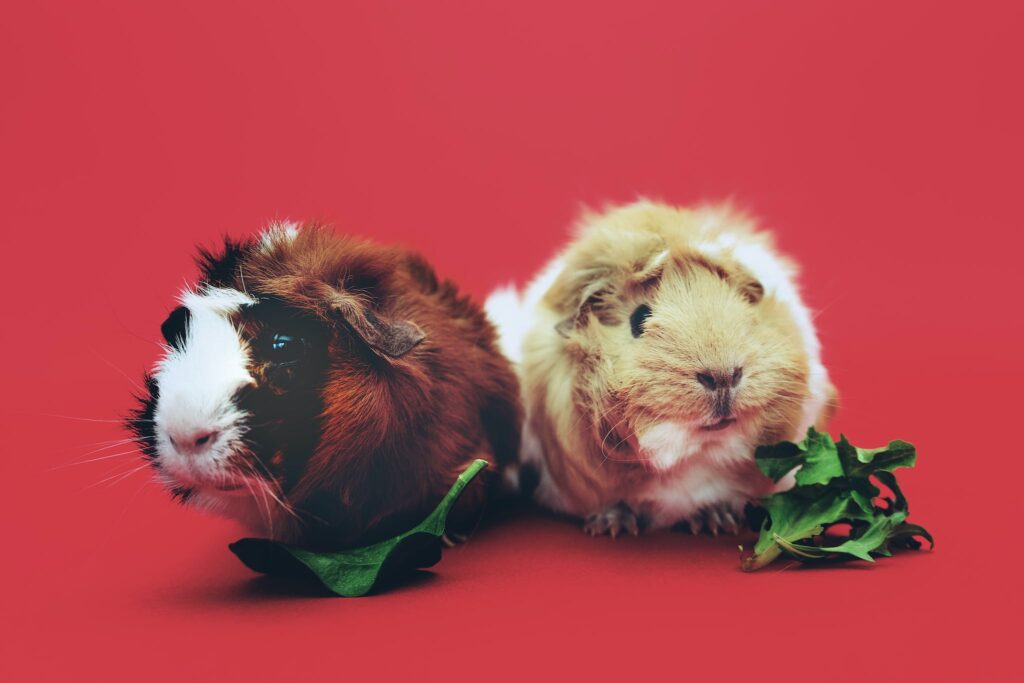
Understanding Guinea Pig Behavior
Guinea pigs are social animals that are known for their playful and curious nature. They are also quite messy creatures, and it is important to understand their behavior in order to keep their living space clean and comfortable.
Social Animals
Guinea pigs are highly social animals and thrive in the company of other guinea pigs. They communicate with each other through a variety of sounds and body language, and they enjoy playing and exploring together. If you are considering getting a guinea pig, it is important to keep in mind that they do best with a companion.
Messy Animals
Guinea pigs are also quite messy animals, and they require a clean living space in order to stay healthy. They produce a lot of waste, and their bedding can quickly become soiled. It is important to clean their living space regularly and provide them with fresh bedding. You may also want to consider using a litter box to help contain their waste.
In addition to their waste, guinea pigs also tend to scatter their food and bedding around their living space. This can make their environment look cluttered and disorganized. Providing them with a designated feeding area and using a tray under their bedding can help to minimize mess.
Overall, understanding guinea pig behavior is key to keeping them happy and healthy. By providing them with a clean and comfortable living space, you can ensure that they thrive in your care.
Choosing the Right Cage
When it comes to guinea pigs, providing a suitable cage is essential for their health and happiness. Choosing the right cage for your guinea pig can be overwhelming with so many options available. Here are some factors to consider when selecting a cage for your furry friend.
C&C Cage
C&C (Cubes and Coroplast) cages are a popular option for guinea pig owners. These cages are customizable and can be made to fit any space. The cage consists of wire grids and a plastic base, which is lined with coroplast. C&C cages are easy to clean, and the grids allow for good ventilation. Additionally, the grids can be used to attach accessories such as water bottles and hay racks.
Larger Cage
Guinea pigs need plenty of space to move around and play. A larger cage will provide your guinea pig with more room to explore and exercise. A cage that is at least 7.5 square feet is recommended for one or two guinea pigs. If you have more than two guinea pigs, you will need to provide additional space.
When selecting a cage, make sure it is easy to clean and has good ventilation. Avoid cages with wire bottoms as they can cause injury to your guinea pig’s feet. Additionally, make sure the cage is secure and escape-proof.
Overall, choosing the right cage for your guinea pig is crucial for their well-being. Consider your guinea pig’s needs and personality when selecting a cage. With the right cage, your guinea pig will have a comfortable and happy home.
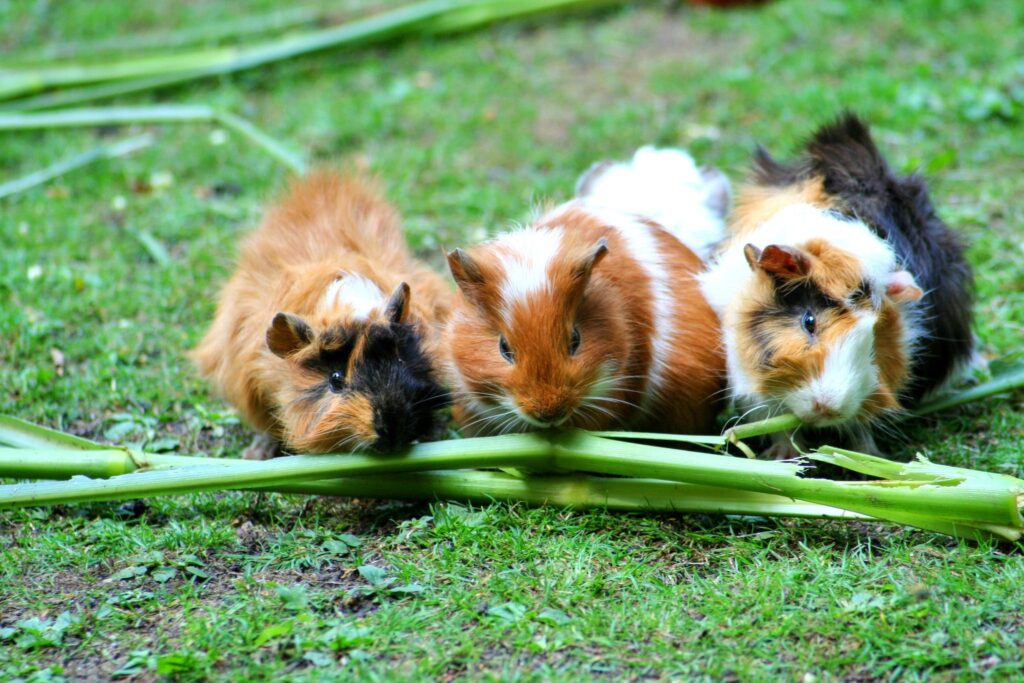
Essential Cage Accessories
When it comes to keeping your guinea pig’s cage clean, having the right accessories can make all the difference. Here are the three essential accessories you’ll need to keep your guinea pig’s cage tidy and organized.
Water Bottles
Water bottles are a must-have accessory for any guinea pig cage. Not only do they provide a constant source of fresh water for your pet, but they also help keep the cage clean and dry. Look for a water bottle that is easy to refill and clean, and that attaches securely to the side of the cage.
Food Bowl
A good food bowl is essential for keeping your guinea pig’s food clean and dry. Look for a bowl that is the right size for your pet and that is easy to clean. Ceramic bowls are a good choice because they are heavy and won’t tip over easily.
Hay Rack
Hay is an important part of your guinea pig’s diet, but it can be messy. A hay rack is a great way to keep hay contained and off the floor of the cage. Look for a rack that is easy to refill and that attaches securely to the side of the cage.
By providing your guinea pig with these essential accessories, you can help keep their cage clean and tidy. Remember to clean and refill these accessories regularly to ensure your pet stays healthy and happy.
How to Get Rid of Guinea Pig Urine Smell: Effective Solutions
Optimal Bedding Solutions
When it comes to keeping your guinea pigs clean and comfortable, choosing the right bedding is essential. Here are some optimal bedding solutions to consider:
Fleece Liners
Fleece liners are a popular choice for guinea pig owners because they are easy to clean and reuse. They are made of soft, absorbent material that wicks moisture away from your pet’s skin, keeping them dry and comfortable. Fleece liners also help to reduce odors and can be washed and dried in the washing machine.
To use fleece liners, you will need to place them on top of an absorbent layer, such as towels or puppy pads. This will help to prevent urine from soaking through to the bottom of the cage. Fleece liners should be changed and washed at least once a week to keep them clean and hygienic.
Wood Shavings
Wood shavings are a popular choice for guinea pig bedding because they are absorbent and provide a natural, comfortable surface for your pets to rest on. However, it is important to choose the right type of wood shavings, as some types can be harmful to your guinea pigs.
Avoid cedar and pine shavings, as they contain oils that can cause respiratory problems and skin irritation. Instead, opt for aspen or kiln-dried pine shavings, which are safe and absorbent.
Wood shavings should be changed regularly to prevent the buildup of bacteria and odors. It is also important to avoid using dusty or dirty shavings, as these can cause respiratory problems for your pets.
Paper Products
Paper products, such as shredded paper or paper-based bedding, are another option for guinea pig bedding. They are absorbent, eco-friendly, and can be composted or recycled after use.
However, it is important to choose paper products that are free from chemicals and additives, as these can be harmful to your guinea pigs. Look for unbleached or recycled paper products, and avoid using glossy or colored paper.
Paper products should be changed regularly to prevent the buildup of bacteria and odors. They can also be messy, so it is important to choose a product that is easy to clean up and dispose of.
Overall, choosing the right bedding for your guinea pigs is important for their health and comfort. Consider the pros and cons of each option and choose the one that works best for you and your pets.
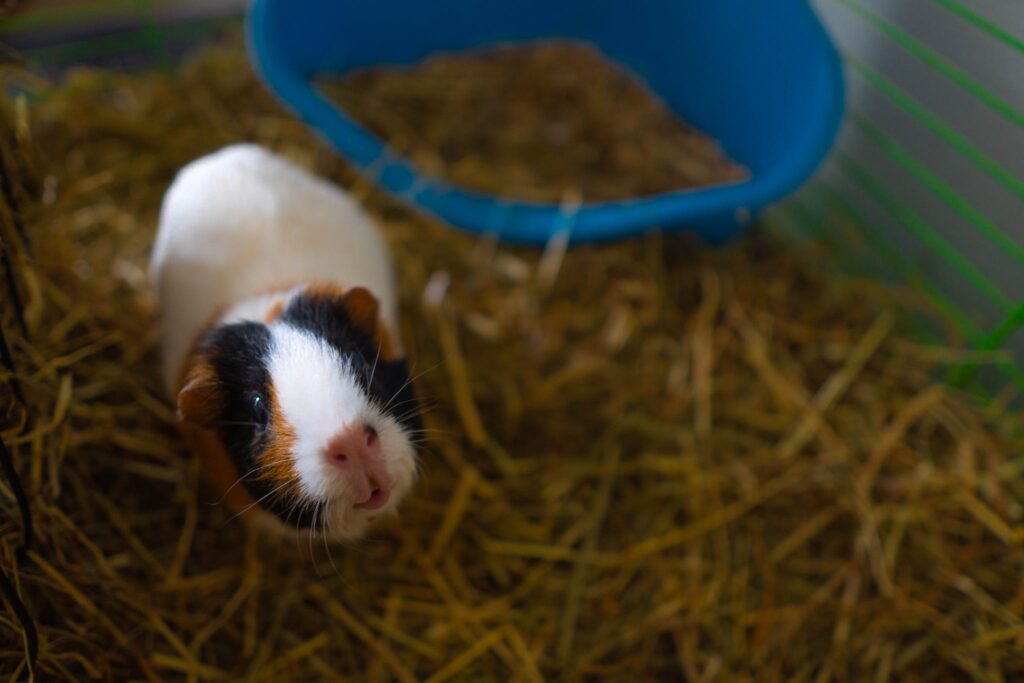
Maintaining a Clean Cage
Keeping your guinea pig’s cage clean is essential to their health and well-being. A clean cage not only prevents odors from building up but also helps prevent the growth of harmful bacteria. In this section, we will discuss how to maintain a clean cage for your furry friend.
Regular Cleaning
Regular cleaning of your guinea pig’s cage is necessary to keep it clean and healthy. You should clean the cage at least once a week, but if you have more than one guinea pig or a particularly messy pet, you may need to clean it more often.
To clean the cage, remove all the bedding and any uneaten food. Dispose of the bedding and food in the trash. Then, using a mild soap and warm water, clean the cage thoroughly. Rinse the cage with water and dry it with paper towels.
To reduce odors and disinfect the cage, you can use a solution of white vinegar and water. Mix one part vinegar with three parts water and spray it on the cage. Let it sit for a few minutes, then rinse the cage with water and dry it with paper towels.
Washing Machine Use
If you use fleece bedding for your guinea pig’s cage, you can wash it in the washing machine. Wash the bedding separately from your other laundry using a mild detergent. Do not use fabric softener or bleach, as these can be harmful to your pet.
After washing, tumble dry the bedding on low heat or hang it to dry. Make sure the bedding is completely dry before putting it back in the cage.
In conclusion, maintaining a clean cage is an important aspect of caring for your guinea pig. Regular cleaning and the use of appropriate cleaning solutions will help keep your pet healthy and happy.
Feeding and Nutrition
Vitamin C Requirements
Guinea pigs are unable to produce their own Vitamin C, which means they need to obtain it through their diet. It is recommended that guinea pigs receive 10-30 mg of Vitamin C per day. It is important to note that Vitamin C is a water-soluble vitamin, which means it can be lost through cooking and storage. Therefore, it is essential that your guinea pig’s diet includes fresh sources of Vitamin C.
Fresh leafy greens such as kale, parsley, and spinach are excellent sources of Vitamin C. However, it is important to provide a variety of leafy greens to ensure your guinea pig receives a balanced diet. Additionally, you can supplement your guinea pig’s diet with Vitamin C tablets or drops, which can be added to their water or food.
Unlimited Hay
Hay is an essential part of a guinea pig’s diet and should be available to them at all times. Timothy hay is the most commonly recommended type of hay for guinea pigs, as it is high in fiber and low in calcium. Fresh hay helps to keep your guinea pig’s digestive system healthy and can help prevent dental problems.
It is important to provide your guinea pig with unlimited hay, as they need to constantly graze to maintain their digestive health. You can provide hay in a hay rack or simply scatter it around their living area. Make sure to check the hay regularly for signs of mold or dust, as these can be harmful to your guinea pig’s health.
Overall, a balanced diet that includes fresh sources of Vitamin C and unlimited hay is essential for your guinea pig’s health and well-being. By providing your guinea pig with a variety of leafy greens and fresh hay, you can help ensure they receive all the nutrients they need to thrive.
Health and Hygiene
Avoiding Health Problems
Guinea pigs are generally healthy pets, but they can suffer from a few common health problems. To keep your guinea pig healthy, you should provide a clean living environment, a balanced diet, and regular veterinary check-ups.
One of the most important things you can do to avoid health problems is to keep your guinea pig’s living area clean. Remove any uneaten food, droppings, and soiled bedding daily. Clean the cage thoroughly at least once a week, replacing all bedding and wiping down all surfaces with a pet-safe cleaner.
Another way to keep your guinea pig healthy is to provide a balanced diet. Guinea pigs need hay, fresh vegetables, and a small amount of pellets. Avoid feeding your guinea pig sugary or fatty foods, as these can cause health problems.
Finally, regular veterinary check-ups are important to catch any health problems early. Your veterinarian can recommend a vaccination schedule and check for any signs of illness.
Grease Gland Care
Guinea pigs have a unique gland near their anus called the grease gland. This gland produces a waxy substance that helps lubricate the skin and fur. If the grease gland becomes blocked, it can cause discomfort and even infection.
To care for your guinea pig’s grease gland, you should check it regularly for any signs of blockage. If you notice a buildup of wax, you can clean the area with a damp cloth or cotton ball. Be gentle and avoid pulling on the fur, as this can be painful for your guinea pig.
If you notice any signs of infection, such as redness, swelling, or discharge, contact your veterinarian immediately. Infections can be serious and require prompt treatment.
By following these tips for health and hygiene, you can help keep your guinea pig happy and healthy.
Behavioral Considerations
Guinea pigs are social animals that require companionship, and they thrive in pairs or groups. They are known for their playful and curious nature, making them great companion animals for adults and children alike. However, before getting a guinea pig, it is important to understand their behavioral considerations.
Companion Animals
Guinea pigs are social animals that require companionship, and they thrive in pairs or groups. When kept alone, they can become lonely and depressed, which can lead to behavioral problems such as aggression, self-mutilation, and lethargy. Therefore, it is recommended to keep at least two guinea pigs together, preferably of the same sex.
When introducing two guinea pigs, it is important to do so gradually and in a neutral environment. This will help them get used to each other’s scent and prevent any aggressive behavior. It is also important to provide enough space and resources for each guinea pig to avoid competition and conflicts.
Physical Contact
Guinea pigs are generally docile and friendly animals, but they have sensitive skin and can be easily injured. Therefore, it is important to handle them gently and with care. When picking up a guinea pig, support their body and avoid grabbing them by the scruff of their neck or legs.
It is also important to avoid rough play or physical contact that can cause harm to the guinea pig. This includes pulling their fur, squeezing them too hard, or dropping them. Children should always be supervised when handling guinea pigs to prevent any accidental injuries.
In conclusion, guinea pigs are social animals that require companionship and gentle handling. By understanding their behavioral considerations, you can provide them with a safe and happy environment.
Special Needs for Specific Breeds
When it comes to guinea pigs, there are several breeds to choose from, each with its unique set of special needs. Here are some things to keep in mind when caring for long-haired guinea pigs and skinny pigs.
Long-Haired Guinea Pigs
Long-haired guinea pigs, such as the Peruvian and Silkie breeds, are known for their beautiful, flowing locks. However, their long hair requires extra grooming to keep it clean and tangle-free. You should brush your long-haired guinea pig daily to prevent matting and hairballs, which can be dangerous to their health.
In addition to daily grooming, long-haired guinea pigs need a clean and spacious living area. Their long hair can easily become soiled with urine and feces, leading to skin irritation and infections. Make sure to provide plenty of bedding and clean their living area regularly to keep them healthy and happy.
Skinny Pigs
Skinny pigs, also known as hairless guinea pigs, may look a bit different from their furry counterparts, but they require the same level of care and attention. Because they lack fur, they are more susceptible to temperature changes and need to be kept in a warm, draft-free environment.
Skinny pigs also have more sensitive skin than other breeds, so it’s essential to keep their living area clean and free of irritants. You should avoid using harsh cleaning products and opt for gentle, fragrance-free options instead.
Overall, all guinea pigs require special care and attention to keep them healthy and happy. By understanding the needs of your specific breed, you can provide them with the best possible care and ensure they live long, happy lives.
The Role of Pet Owners
As a guinea pig owner, it is important to understand the responsibilities that come with caring for your pet. Guinea pigs are not inherently messy, but they do require a certain level of maintenance to keep their environment clean and healthy.
Time Commitment
One of the most important aspects of being a responsible guinea pig owner is committing the necessary time to care for your pet. This includes daily tasks such as feeding, watering, and cleaning their cage. Additionally, guinea pigs require social interaction and exercise, so owners should be prepared to spend time playing with and handling their pets.
Understanding Responsibilities
In addition to time commitment, pet owners must understand their responsibilities in providing a safe and healthy living environment for their guinea pig. This includes providing proper nutrition, bedding, and toys. It is also important to regularly clean their cage and monitor their health for any signs of illness.
Pet stores and pet sitters can be valuable resources for guinea pig owners, providing information and supplies to help care for their pets. However, it is ultimately the responsibility of the owner to ensure that their guinea pig is well-cared for and living in a clean and safe environment.
Overall, being a guinea pig owner requires a lot of time and effort, but the rewards of a happy and healthy pet are well worth it. By understanding your responsibilities and committing to providing the best care possible, you can ensure that your guinea pig is a happy and beloved member of your family.
